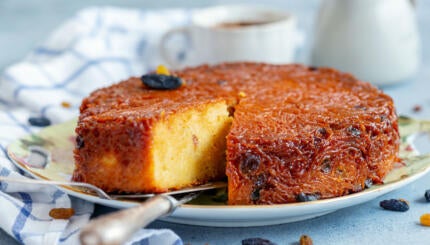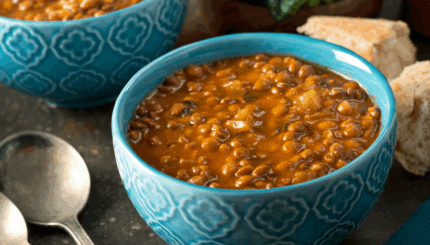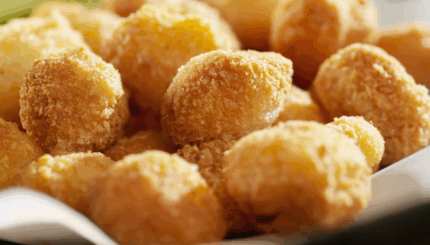Last week, in the midst of an independent study meeting with a fourth grader, I was exploring the topic of mixing up holiday traditions, and trying to gauge my student’s opinions. Because it had just recently shown up on my Facebook feed, I shared with her the website for a Menorah tree – the latest innovation in cultural appropriation during the December holiday season. When I asked her what she thought, my incredibly bright and thoughtful student responded, “I think I’d need to know more about the origins of both symbols before I could decide.” No knee-jerk reaction. No embracing of the commercialism or rejecting of the “non authentic.” Just a considered response that indicated the need to understand more about symbols, where they come from, and what they mean to people, before reaching a personal conclusion.
One of the things that I’ve noticed this year, with the confluence of Thanksgiving and Hanukkah, creating Thanksgivukkah for those celebrating in the USA, is that I’ve had many thoughtful conversations like this over the past few weeks, with middle schoolers, high schoolers, and adults alike. Yes, people are having fun with their “Menurkeys” and blended Thanksgiving meal menus this year, but what I’m finding is that people are asking really good questions and having really good conversations about the meaning of the holidays, what the symbols represent, where a valid connection can be made, conceptually, between parts of the Thanksgiving myth and parts of the Hanukkah myth (as so eloquently laid out by my RWB colleague, Rabbi Laura Duhan Kaplan, earlier this week). When my congregants had these conversations with me, it has provided many opportunities to share aspects of Hanukkah at a deeper level. People are asking – they want to know. They want to find ways to make it all as meaningful as possible and, in order to do that, they are looking to mine the riches of our traditions, not simply invent and make up new ones. That’s why, in my congregation this Shabbat we’ll be celebrating and highlighting Thanksgiving and Hanukkah in one of monthly ‘Ritual Lab’ services, providing another opportunity for our community to examine both holidays, compare and contrast and learn together while also celebrating Shabbat together (courtesy of my colleague, Rabbi Joe Eiduson, who has put together an innovative weaving of materials).
So, while I’ve read other articles where the authors wish that Hanukkah could just be Hanukkah (you know, that authentic Jewish holiday where we play a 10th Century Anglo Saxon gambling game with a spinning top, eat fried foods common to the cuisine of Germany and Central Europe, and sing a festival anthem set to the melody of a Medieval German marching tune!), I believe otherwise. This year’s juxtaposition of secular and Jewish calendar has opened up rich and meaningful conversations that might not otherwise have taken place. More people know a little bit more about their Jewish heritage and traditions than they otherwise might have.
There’s something else that I think we might consider dropping when we talk about Hanukkah. Let’s stop describing it as ‘a minor Jewish holiday’. The origins of this statement may be halachic in nature – the rabbis did not require Hanukkah to be like some of our other Festivals where we do no work and follow many of the other restrictions of a Sabbath day. They did insert some additional liturgy to mark the holiday, but not at the scale of many of our other festival days. This move was partially historical, but also somewhat political – there were reasons that the Rabbis were, in fact, somewhat ambivalent about the Hasmonean rule that emerged from the Maccabee victory and, while the festival was already firmly established, they did not want to overemphasize its importance in the Jewish calendar.
However today, when I hear people talk about Hanukkah only being a ‘minor’ holiday, what I hear is more of a disdain for the commercial competition with Christmas. But too often, what we are actually telling our communities, inadvertently, is not ‘don’t go over the top with the secular and commercial aspects of the holiday’ but rather, ‘this isn’t really one of our important holidays.’ And so, in fact, we end up sending the message that Hanukkah cannot and should not be held up, embraced, celebrated, enriched and enjoyed (and yes, that means the light-hearted commercial kind of enjoyment too) as a meaningful winter holiday of hope and light in the midst of the dark and the cold. We send the message that only Christmas can do that at this time of year – our little holiday simply can’t ‘compete’. Why do we want to impart that message? If having an inflatable, lit-up menorah on your front lawn, or a menorah tree in your house, eight nights of gift-giving, or creating new secular-styled ‘pop’ Hanukkah songs makes for a joyful celebration in your home and extends the time you spend thinking about and celebrating this Jewish holiday, isn’t that a good thing?
As we arrive at erev Hanukkah, and erev Thanksgiving, tonight, I wish you all a wonderful, enjoyable, and meaningful Thanksgivukkah!
erev
Pronounced: EH-ruv, Origin: Hebrew, evening, eve, usually used to denote the first night of a Jewish holiday, such as Erev Yom Kippur (Jewish days begin at sundown).
halachic
Pronounced: huh-LAKH-ic, Origin: Hebrew, according to Jewish law, complying with Jewish law.
Hanukkah
Pronounced: KHAH-nuh-kah, also ha-new-KAH, an eight-day festival commemorating the Maccabees' victory over the Greeks and subsequent rededication of the temple. Falls in the Hebrew month of Kislev, which usually corresponds with December.
menorah
Pronounced: muh-NOHR-uh, Origin: Hebrew, a lamp or candelabra, often used to refer to the Hanukkah menorah, or Hanukkiah.
Shabbat
Pronounced: shuh-BAHT or shah-BAHT, Origin: Hebrew, the Sabbath, from sundown Friday to sundown Saturday.



